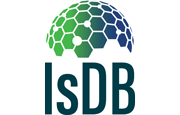
The Islamic Development Bank (IsDB) and TWAS have partnered to promote and support quick-response research on key challenges related to the post COVID-19 pandemic. The IsDB-TWAS Joint Research & Technology Transfer Grant programme is fully funded by the IsDB and established to develop collaboration between researchers of IsDB member countries. Under this programme, qualified researchers from 57 IsDB countries* are invited to form a joint research collaboration consisting of two groups from different countries working on areas related to the post COVID-19 pandemic.
The programme will choose one joint- project per year. The grant amounts to a maximum of USD 50,000 per research group – USD 100,000 total for the joint-project.
Grants will enable the collaborating groups to purchase the research equipment and strengthen the facilities they need to enhance their partnership and productivity and to support the mobility of scientists between the participating institutions for training purposes. Partners should ensure, through the grant, that enough consumable supplies are available during such visits.
One of the two groups must be based in an IsDB Least Developed Member Country.** The application must be filled in and submitted via the TWAS Online Forms system by Principal Investigator 1 (PI 1); where one PI is not from an IsDB Least Developed Member Country, he or she will fill out the form. In cases where both PIs are from IsDB Least Developed Member Countries either one may submit the form. The PI submitting the form will be responsible for inserting correct information for both parties.
The IsDB-TWAS Joint Research & Technology Transfer Grant will be awarded to the project which demonstrates the best potential to advance knowledge and help address the challenges created by the coronavirus and future pandemics.
A grant may be used to purchase scientific equipment and consumables and support the travel and remote working of scientists between the two participating institutions. The grant may also cover, where justified, expenses related to field work. The grant does not cover salaries of researchers and/or students. In addition, the purchase of laptop computers and laboratory animals are not supported.
Research Areas
Examples of specific themes include, but are not limited to:
Eligibility Criteria
- Each Principle Investigator (PI) must be a national of an IsDB member country and hold a PhD with good research experience and lead each research group. (Note: The PI will be responsible for the coordination of the research, submission of requested documentation and reporting of the expenses. All TWAS correspondence will be with each PI).
- One PI MUST be from an IsDB Least Developed Member Country and the other from any of the eligible IsDB member countries.
- Each member of the group should operate in a university or research institution in one of the IsDB member countries and should be represented in the proposal by a PI. No age limit is applied to the applicant.
- Applications from women scientists are especially encouraged.
- Individual young scientists or leaders of research units currently holding a TWAS Research Grant in the Basic Sciences are not eligible.
How to apply:
- Applications must be submitted online via the TWAS online portal. The link to this page is found at the bottom of this page.
- Applications not submitted via this online portal will not be considered.
- No applications will be accepted after the deadline. Therefore, it is recommended to submit your electronic application as early as possible.
- Incomplete applications will not be considered.
- Please note that a researcher may only submit one application at a time and for only one kind of grant (either as an IsDB-TWAS grant or as an individual grant, as a research unit, COMSTECH or the OWSD Early Career Women Scientists (ECWS) Fellowship). Applicants cannot apply for other TWAS programmes i.e. Postdoctoral, Visiting Scholar and Visiting Researcher programme within the same year in order to be present in their home country throughout the duration of the grant.
- For any queries please write to isdb@twas.org
When to apply
- The new extended deadline for receiving applications is 14 February 2023. We strongly recommend that you do not wait until the deadline but submit the application as early as you can to enable us to process your application as quickly as possible.
*IsDB Member Countries:
Afghanistan, Albania, Algeria, Azerbaijan, Bahrain, Bangladesh, Benin, Brunei, Burkina Faso, Cameroon, Chad, Comoros, Côte d'Ivoire, Djibouti, Egypt, Gabon, Gambia, Guinea, Guinea-Bissau, Guyana, Indonesia, Iran, Iraq, Jordan, Kazakhstan, Kuwait, Kyrgyz Republic, Lebanon, Libya, Malaysia, Maldives, Mali, Mauritania, Morocco, Mozambique, Niger, Nigeria, Oman, Pakistan, Palestine, Qatar, Saudi Arabia, Senegal, Sierra Leone, Somalia, Sudan, Suriname, Syrian Arab Republic, Tajikistan, Togo, Tunisia, Turkey, Turkmenistan, Uganda, United Arab Emirates, Uzbekistan, Yemen.
**IsDB Least Developed Member Countries:
Afghanistan, Bangladesh, Benin, Burkina Faso, Chad, Comoros, Djibouti, Gambia, Guinea, Guinea-Bissau, Mali, Mauritania, Mozambique, Niger, Senegal, Sierra Leone, Somalia, Sudan, Togo, Uganda and Yemen


